News + Media
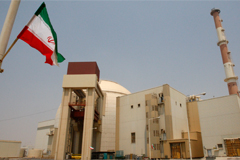 |
In the NewsJune 10, 2008Interest grows for international Iran atom plantFarah StockmanBoston GlobePresidential candidates John McCain, the presumptive GOP nominee, and Barack Obama, the presumptive Democratic nominee, have both endorsed using international consortiums to produce nuclear fuel as a way to take production out of the hands of unpredictable states, but neither has said he would consider placing such a facility inside Iran. |
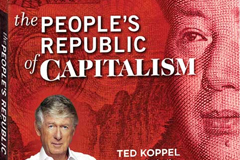 |
News ReleaseJune 9, 2008Advance screening of Discovery Channel's Koppel on Discovery: The People's Republic of CapitalismIn the wake of the catastrophic earthquake in China's Sichuan province and on the eve of the Olympics this August in Beijing, Discovery Channel Managing Editor Ted Koppel presents Koppel on Discovery: The People's Republic of Capitalism, a sweeping four-part series that examines modern China. |
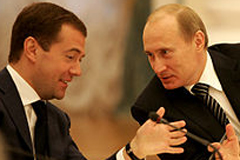 |
AuditJune 1, 2008Who leads Russia?Elizabeth Wood, MITEver since Dmitri Medvedev’s nomination to succeed Vladimir Putin as president of Russia, followed by his election and now his inauguration, Kremlin watchers, both Russian and Western, have been discussing the so-called “Putin-Medvedev tandem” and asking who will really lead Russia. Is the duumvirate stable? Will it degenerate into squabbling among the Kremlin clans behind the scenes? |
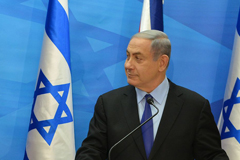 |
AuditMay 1, 2008Much ado about nothing: the Israeli-Palestinian peace processAnat Biletzki, MITTwo myths have been with us for a while now; one is of lasting permanence, the other has gained traction more recently. The first is that the way to get out of the Israeli-Palestinian imbroglio is by engaging in a “peace process,” and the second is that the result of that peace process is pretty much well-known. . |
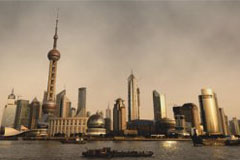 |
AuditMay 1, 2008Insights into two American empiresAlice Amsden, MITIn Escape from Empire: The Developing World ’s Journey through Heaven and Hell (MIT Press, 2007), Alice Amsden tartly takes on much of the conventional wisdom about the global economy. In this interview, she briefly touches on a few of the book’s provocative themes. |
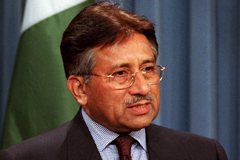 |
AuditMay 1, 2008Pakistan’s governance imperativeAfter the kind of year that no country ever wants, with its government in crisis, repression replacing even the most remote notion of good government, political assassination, and terror standing in the wings, Pakistan elected a new parliament in February. Led initially by a coalition of three parties previously deemed outcasts by President Pervez Musharraf, its cabinet of familiar political faces quickly agreed in principle, and at least in public, on a compelling and daunting political agenda. |
 |
Analysis + OpinionApril 24, 2008The divestment trapJohn TirmanBoston GlobeThe bill on Beacon Hill would remove all state pension funds from investments in Iran's energy industry as a means of punishing Iran for bad behavior. |
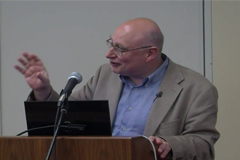 |
In the NewsApril 9, 2008Leaderless Jihad: radicalization in the westMarc Sageman, an expert on al Qaeda and related terrorist organizations, discusses how people end up on the path to political violence in a post-9/11 world. His talk builds upon his best-selling book, "Understanding Terror Networks" and is based upon his recent publication, "Leaderless Jihad." Sageman is an independent researcher on terrorism and the founder of Sageman Consulting, LLC. He holds various academic positions at the George Washington University, the University of Maryland and national think tanks, like the Foreign Policy Research Institute, the Center for Strategic and International Studies, and the Homeland Security Policy Institute. |
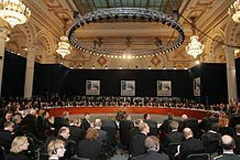 |
Analysis + OpinionApril 3, 2008Don't 'pull an Iraq' in AfghanistanBenjamin H. FriedmanChristian Science MonitorMassive state-building efforts are not a good use of tax dollars. |
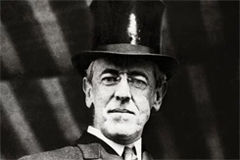 |
AuditApril 1, 2008Wilson, Bush, and the evolution of liberal foreign policyTony Smith, Tufts UniversityThe first subject to discuss in considering the future of the liberal internationalist agenda is the importance of the democratization project to the definition of Wilsonianism. The second is the meaning of multilateralism. In the first case, Thomas Knock and Anne-Marie Slaughter argue in a forthcoming volume that democratization was never an important part of Wilsonianism; that, instead, multilateralism is the key to liberal internationalism. |



